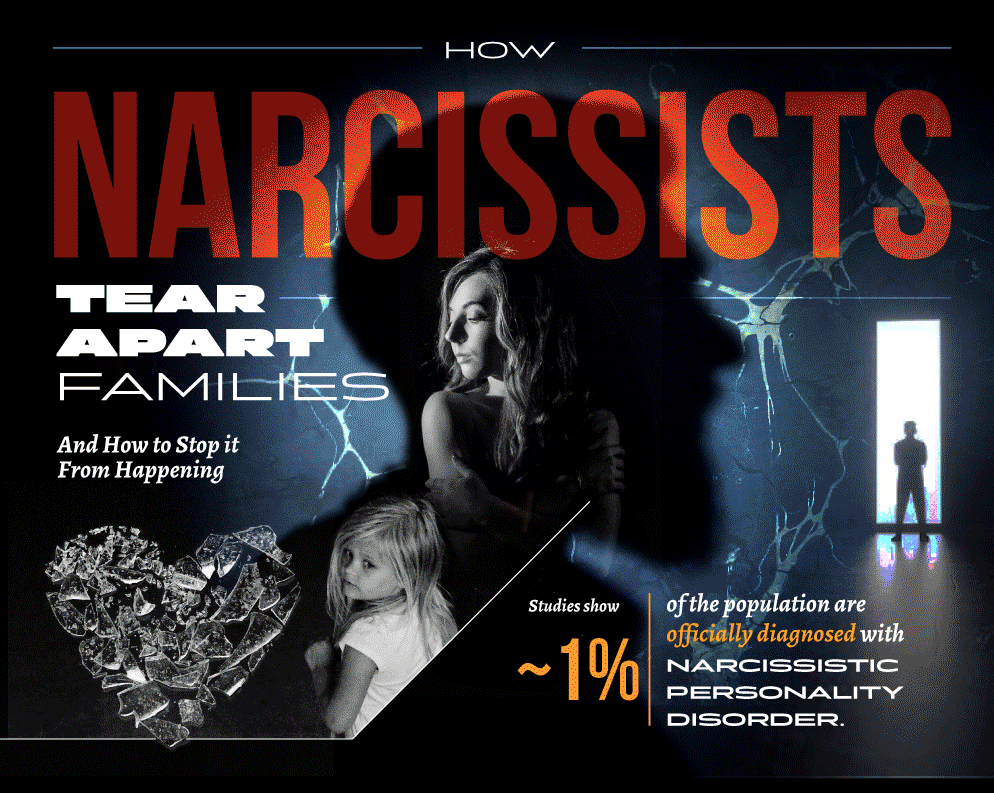There are people in the world with destructive personality traits that can spread harm to those around them. One of these dark personality types is narcissism. People with narcissist personality disorder (NPD) are known to be extremely self-centered, often at the expense of others. Their defining traits include entitlement, a superiority complex, a strong sense of arrogance, and a lack of empathy or concern for others. While everyone shows these traits from time to time, a person officially diagnosed with NPD has these traits as a core part of their personality.
Only 1% of the population is diagnosed, but experts estimate that the actual rate is much higher, at around 15% to 20% of the population. This frequency comes out to about one narcissist per household, meaning there are many spouses and children around the world that are affected by their behavior. These family structures can be very cold and toxic, with the narcissist causing poor communication, unclear boundaries, control issues, and secret keeping amongst family members.
There are many tactics that narcissists use to keep dominating their family and maintain their sense of importance. They use gaslighting and blame shifting to feel as though they have won their arguments. They tend to exaggerate their own achievements and take credit for others’ to stroke their egos. They can even use manipulative tactics such as charm and love bombing to keep those in their lives still wrapped around their fingers. All of these behaviors can lead their closest family members to experience long term mental effects such as low self esteem, distrust of others, and addictive behaviors.
Eventually these emotional costs can prove to be too taxing for the family members of some narcissists. It is important to prepare for a separation by separating finances, updating legal documents, setting up new contact information, and designating custody arrangements. A clean separation can lead to a happier, more secure future away from the draining behaviors of a narcissist.










